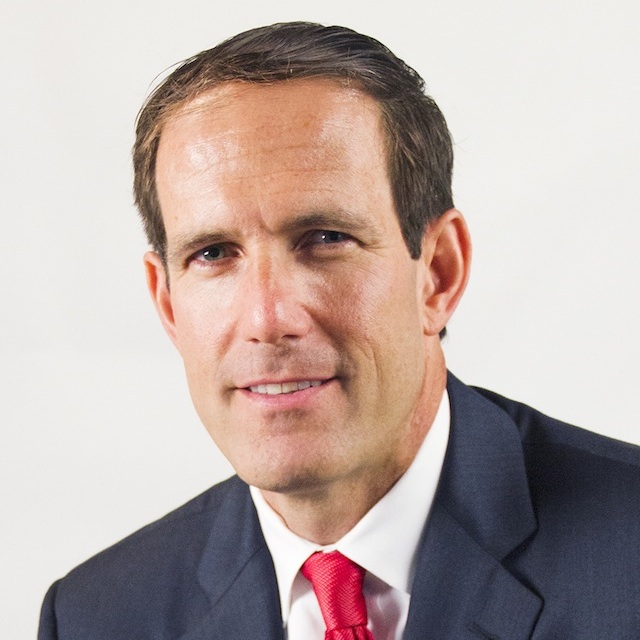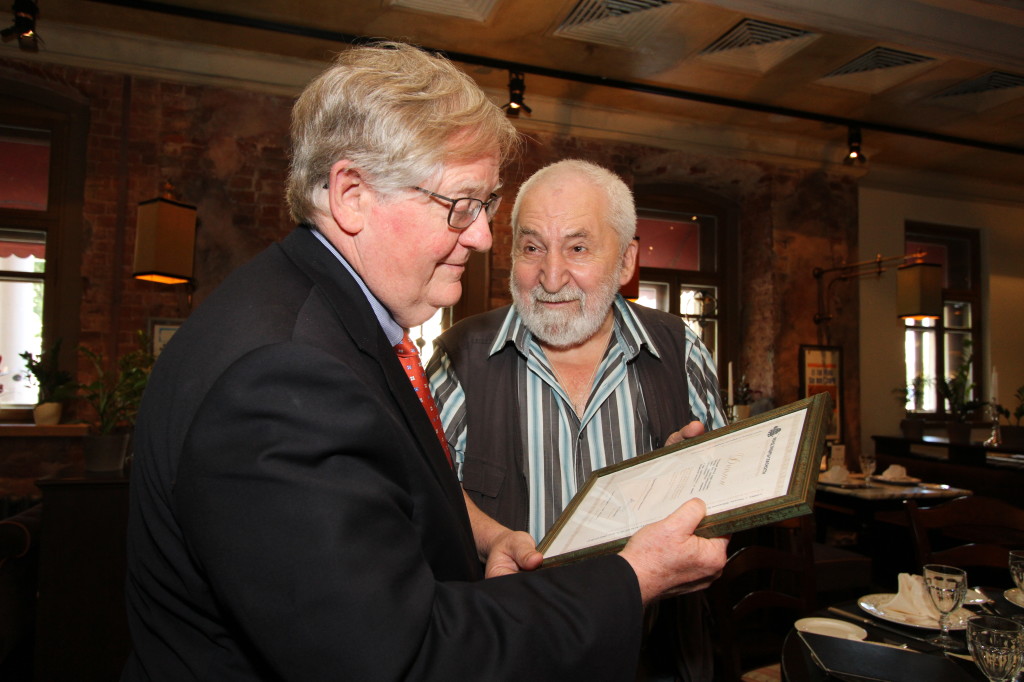BBG Watch Commentary
BBG Governor Matt Armstrong about the bipartisan United States International Communications Reform Act of 2014 (H.R. 4490): “So, yes, I think, I know, we are a good Agency. I think we are on a good path. We’re going to need some assistance. And the language is overly harsh (pause) and not fair.”
Broadcasting Board of Governors (BBG) Governor Matthew Armstrong called the bipartisan bill to reform U.S. international media outreach through the Voice of America (VOA) and other news entities funded by U.S. Congress with taxpayers’ money for countries without free media as “overly harsh” and “not fair.”
Armstrong’s remarks were met with criticism from former BBG member Ambassador Victor Ashe who said in a statement that Armstrong is on the wrong track and that “legislation to change the status quo has strong bipartisan backing and will ultimately prevail despite Armstrong.”
The bipartisan bill was introduced by House Foreign Affairs Committee Chairman Rep. Ed Royce (R-CA) and Ranking Democratic Member Rep. Eliot Engel (D-NY) and 13 co-sponsors. It was unanimously passed the the House Foreign Affairs Committee in response to numerous complaints from former Secretary of State Hillary Clinton and others that the agency is mismanaged and practically defunct in its ability to reach and influence media audiences abroad. Hillary Clinton said that the U.S. is losing the information and propaganda war to countries like Russia and China.
In a public meeting with Voice of America journalists in May 2014, a Republican Governor on the bipartisan BBG Board, Matthew Armstrong, disagreed with this kind of criticism, which he called “dated,” “overly harsh” and “not fair.” He countered that the agency is already carrying out reforms. Critics say that these reforms are nowhere near addressing the dysfunction, mismanagement and lack of direction at the Voice of America and the BBG’s International Broadcasting Bureau (IBB) bureaucracy.
Matthew Armstrong is the only BBG Governor who has publicly criticized pending bipartisan legislation to reform the Broadcasting Board of Governors.
BBG Chairman Jeff Shell reportedly asked the Board and the agency staff not to comment on the bill, either in support or in opposition to it, and to do the best possible job under any future legislative setup approved by Congress and signed by the President.
BBG employees have rated the management of the agency as one of the worst to work for in the federal government. The agency also has some of the lowest employee morale ratings in surveys of federal government agencies conducted by the Office of Personnel Management (OPM).
Some VOA journalists worry that the bipartisan bill might limit their editorial independence, but most also worry that without any reform bill the agency will be destroyed by its ever growing and fumbling bureaucracy.
Armstrong did not clearly state where he stands on the issue of VOA’s editorial independence but he called congressional criticism “dated,” “overly harsh” and “not fair.” He called the BBG “a good agency” but indicated his support for the proposal to create a CEO position for the agency. That proposal is one of many reforms included in the bill.
Some worry that Armstrong’s comments in defense of the management and his public rebuke of the House Foreign Affairs Committee reform bill language might influence some members of Congress to conclude wrongly that the BBG Board is now satisfied with the status quo. Angered lawmakers might push for defunding the Voice of America completely rather than trying to reform it through legislation. One such proposal has already been announced. Observers also point out that Armstrong’s rebuke of members of Congress might prompt more of them to vote for the H.R. 4490 reform bill.
BBG Governor (now former) Victor Ashe receives Glasnost Award in Moscow, June 2013, for his defense of unjustly fired Radio Free Europe / Radio Liberty (RFE/RL) journalists in Russia. Thanks to his efforts many of these journalists were given their jobs back a few months before President Putin annexed Crimea and intensified his propaganda campaign.
One of those critical of Matt Armstrong is a former BBG member, Ambassador Victor Ashe, who like Armstrong is a Republican and had served on the bipartisan oversight board until last year. Ambassador Ashe released this statement:
“Matt Armstrong is on the wrong track with his strong defense of the status quo at BBG. It is stunning that he would so publicly contradict the efforts of Chairman Jeff Shell. Legislation to change the status quo has strong bipartisan backing and will ultimately prevail despite Armstrong.” Ashe added.
“Apparently Armstrong feels the bureaucrats at the Cohen Building (BBG, IBB and VOA headquarters in Washington, DC) need his backing when no one else on the Board joins him,” he stated.
“Even with the recent powerful U.S. Court of Appeals for the District of Columbia Circuit rejection of the BBG appeal of the Office of Cuba Broadcasting – Radio and TV Marti employees lawsuit, Armstrong stands alone in his failure to assist these mistreated journalists as well as working with American Federation of Government Employees, Local 1812, members to right a wrong,” he continued.
“Fortunately, it appears a majority on the Board want change and Armstrong’s choice is to hold out alone for no meaningful change and refuse to join Jeff Shell in making positive decisions,” Ashe added.
Victor Ashe was confirmed to the board on June 30, 2010 and served until August 1, 2013. According to a bio posted on the BBG website, Ambassador Ashe holds the distinction of being the longest serving mayor of Knoxville. During his time in office, from 1988 to 2003, he was the President to the U.S. Conference of Mayors from 1994 to 1995 and received their Distinguished Service Award for Leadership in 2003. Ashe served as the United States Ambassador to Poland from June 2004 to October 2009. In 2004, he was a Fellow at Harvard University’s JFK Institute of Politics.
Matthew C. Armstrong is described on the BBG website as an author, speaker, and strategist on issues related to public diplomacy. Before being nominated to the BBG as a Republican member and confirmed on August 1, 2013, Armstrong served as executive director of the U.S. Advisory Commission on Public Diplomacy, which was defunded by Congress under his watch and later reinstated after a 19-month suspension. Previously, Armstrong was an adjunct professor of public diplomacy at the Annenberg School of Journalism and Communication at the University of Southern California. In 2010, he founded and served as President of the MountainRunner Institute and published a blog on public diplomacy and strategic communication.

Jeffrey Shell, Chairman of the Broadcasting Board of Governors, is chairman of Universal Filmed Entertainment.
He previously served as chairman of NBC Universal International from 2011-2013 and as president of Comcast Programming Group from 2005 to 2011. Prior to joining Comcast, Shell held a number of positions, including CEO of Gemstar TV Guide International and President of the FOX Cable Networks Group. As president of the FOX Cable Networks, he oversaw the operations of FOX’s entertainment and sports cable programming businesses. He currently serves on the board of the National Constitution Center. Shell earned a B.S. in Economics and Applied Mathematics from the University of California, Berkeley and an M.B.A. from Harvard University.
Shell is the chair of the Broadcasting Board of Governors and chairs the BBG’s Advisory Committee and Special Committee on the Creation of a Chief Executive Officer. He also chairs the boards of directors for the BBG’s grantee networks.
He was confirmed as Chairman of the Broadcasting Board of Governors on August 1, 2013.
The Broadcasting Board Governors (BBG) became the independent entity responsible for all U.S. Government and government-sponsored, non-military, international broadcasting on October 1, 1999.
With enactment of the 1998 Foreign Affairs Reform and Restructuring Act (Public Law 105-277), the BBG assumed authority for the International Broadcasting Bureau (IBB) and its broadcasting services – the Voice of America (VOA) and the Office of Cuba Broadcasting (OCB). The Board also oversees three grantee organizations, Radio Free Europe/Radio Liberty (RFE/RL), Radio Free Asia (RFA), and the Middle East Broadcasting Networks (MBN).
Reforming U.S. International Broadcasting
“Broadcasting Board of Governors is practically defunct in terms of its capacity to be able to tell a message around the world.” – Secretary of State Hillary Clinton, January 23, 2013, Testimony to the House Committee on Foreign Affairs (Watch the video here.)
“I, along with some of my board colleagues, have consistently advocated for necessary and far-reaching reform of the governance structure and organization of U. S. international broadcasting (USIB). My belief in the importance and need for these reforms has only grown stronger the longer I have served.” – Dennis Mulhaupt, April 9, 2013, Resignation letter from the BBG Board
Royce/Engel U.S. International Broadcasting Reform Legislation
H.R. 4490, the United States International Communications Reform Act to improve the missions, objectives, and effectiveness of U.S. international broadcasters. (Introduced on April 28, 2014 by Rep. Ed Royce (R-CA) and Rep. Eliot Engel (D-NY)).
Full text of H.R. 4490, as introduced
Section-by-section summary of H.R. 4490, as introduced
News Releases on Reforming U.S. International Broadcasting
Chairman Royce Announces Hearing on Reforming Broadcasting Board of Governors (June 21, 2013)
Dear Colleague: Support BBG Reform (April 28, 2014)
Hearings on Reforming U.S. International Broadcasting
Broadcasting Board of Governors: An Agency “Defunct” (June 26, 2013)
View Archive Hearing Video:
Secretary of State Hillary Clinton Calls BBG Defunct
Broad Support for U.S. International Broadcasting Reform
Wall Street Journal: A New Voice of America (May 6, 2014)
Commentary: Voice of America Needs a Strategy (May 5, 2014)
The Hill: VOA Reform Push Sparks Propaganda Fears (May 4, 2014)
Radio World: House Committee Passes U.S. International Broadcasting Reforms (May 2, 2014)
Digitial Journal: No propaganda, Voice of America need not fear reform bill (May 2, 2014)
Washington Times:Government media board facing inquiry over hiring protocol (May 1,2014)
CQ/Roll Call: Bill Aims to Enhance Voice of America Role in Propaganda Wars (April 29, 2014)
Foreign Policy: Exclusive: New Bill Requires Voice of America to Toe U.S. Line (April 29, 2014)
The Heritage Foundation: Time to Reform U.S. International Broadcasting (April 24, 2014)
Wall Street Journal: The Voice of America Shouldn’t Be a Whisper (April 17, 2014)
Reports and Fact Sheets
Office of Inspector General: Inspection of BBG
GAO Report on BBG: Additional Steps Needed to Address Overlap in International Broadcasting
Office of Inspector General Letter: Management Attention Needed to Improve BBG Aquisition Functions
Considering the “Illogical Patchwork”: The BBG and U.S. International Broadcasting
Understanding the Mission of U.S. International Broadcasting
CRS Report: U.S. Public Diplomacy: Background and Current Issues

